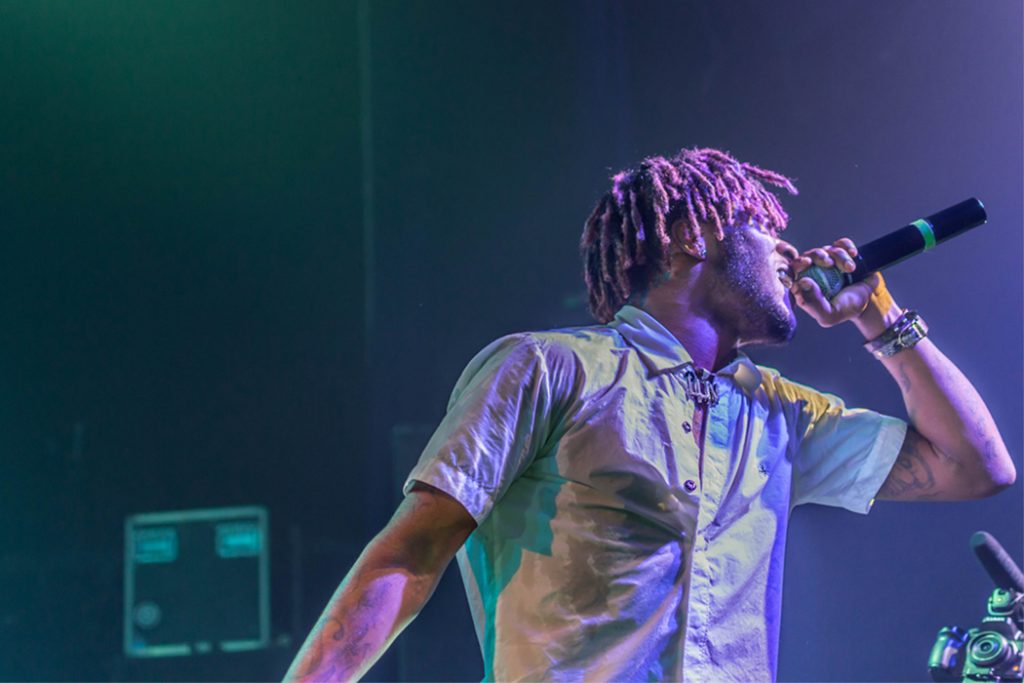Breaking into the music industry requires more than talent; it demands strategic planning, networking, and a relentless drive to stand out. Whether you’re a budding artist or an established musician looking to expand your reach, these expert tips will help you gain the exposure you need to be discovered.
1. Building a Strong Online Presence
In today’s digital age, having a solid online presence is non-negotiable for musicians. It’s your digital storefront, fan hub, and first impression all in one.
Optimize Your Social Media: Platforms like Instagram, TikTok, and YouTube are essential for musicians. Post engaging content, such as music snippets, behind-the-scenes footage, and interactive Q&A sessions. For tips on social media strategies, check out Digital Music News.

Create a Website: Your website should include an updated bio, a music portfolio, tour dates, and a contact page. For inspiration, visit successful artist profiles.
Leverage Streaming Platforms: Ensure your music is available on Spotify, Apple Music, and other platforms. Use tools like Spotify for Artists to analyze listener data. Learn more about leveraging streaming platforms on Hypebot.
2. Networking Within the Industry
Networking is a cornerstone of success in the music industry. Building genuine relationships can open doors to collaborations, gigs, and mentorship opportunities.
Attend Music Events: Conferences, open mics, and local gigs are great venues for connecting with industry professionals. Make an effort to meet event organizers, producers, and fellow artists.

Join Online Communities: Engage in forums and groups focused on your genre. Platforms like BeatstoRapon provide valuable networking opportunities. Explore communities on Gearspace.
Collaborate with Influencers: Influencers and bloggers can amplify your reach. Reach out with personalized messages and collaboration offers. For additional guidance, visit Music Business Worldwide.
3. Leveraging Live Performances
Live performances are a powerful way to showcase your talent and connect with fans personally. They also open doors to industry recognition.
Start Local: Perform at local venues and build a loyal fanbase in your community. As your reputation grows, opportunities for larger gigs will follow.

Collaborate on Events: Partner with other artists for joint concerts, exposing yourself to their audiences and vice versa.
Record and Share Your Performances: High-quality videos of your live performances are excellent content for social media and YouTube. For tips on capturing live performances, read more on Music Connection.
4. Collaborating with Other Artists
Collaboration expands your audience and allows you to learn from other artists in the industry.
Find Compatible Artists: Collaborate with artists whose style complements yours. Ensure the partnership is mutually beneficial and creatively rewarding.

Create Cross-Promotions: Promote each other’s work on social media and streaming platforms. This strategy strengthens your relationship and boosts visibility.
Experiment Across Genres: Mixing genres can lead to unique sounds and broaden your appeal. For creative inspiration, explore AI-generated lyrics. Learn more about managing rights during collaborations at Songtrust.
5. Developing a Unique Brand
Your brand is more than your logo or stage name—it’s your identity as an artist. Crafting a cohesive and authentic image can make you unforgettable.
Define Your Message: Decide what you want to communicate through your music and visuals. Authenticity resonates with audiences.
Invest in Quality Visuals: Hire professionals for photoshoots, music videos, and cover art. Eye-catching visuals can make your content stand out on crowded platforms.
6. Consistently Releasing Music
Staying relevant in the music industry often means consistently releasing high-quality tracks. Regular releases keep fans engaged and attract new listeners.
Plan Your Releases: Use a release calendar to strategically time your songs. Seasonal or thematic releases can resonate deeply with your audience.
Focus on Quality: Work with experienced producers and engineers to ensure your music is polished and professional.
7. Leveraging Analytics
Understanding your audience through data can guide your decisions and maximize your impact.
Track Your Performance: Use analytics tools like Spotify for Artists and YouTube Studio to see what’s working.
Adapt Your Strategy: Use insights to refine your content and engagement strategies.
8. Building Fan Engagement
Engaged fans are your most valuable asset. Building strong relationships with your audience can turn casual listeners into lifelong supporters.
Host Contests: Engage fans with giveaways or challenges related to your music.
Personalize Interactions: Respond to comments, messages, and shout-outs to show appreciation for your fans.
So yep, ya’ just gotta keep going!
Breaking into the music industry takes talent, strategy, and determination. By leveraging digital platforms, building relationships, and consistently delivering quality content, you can create a lasting impression and carve out your space in this competitive world.
